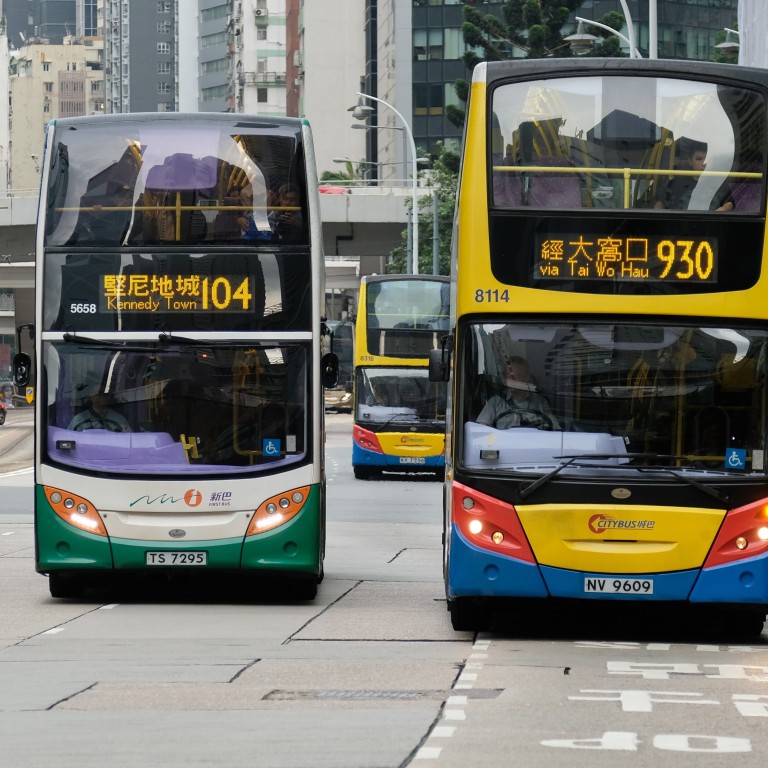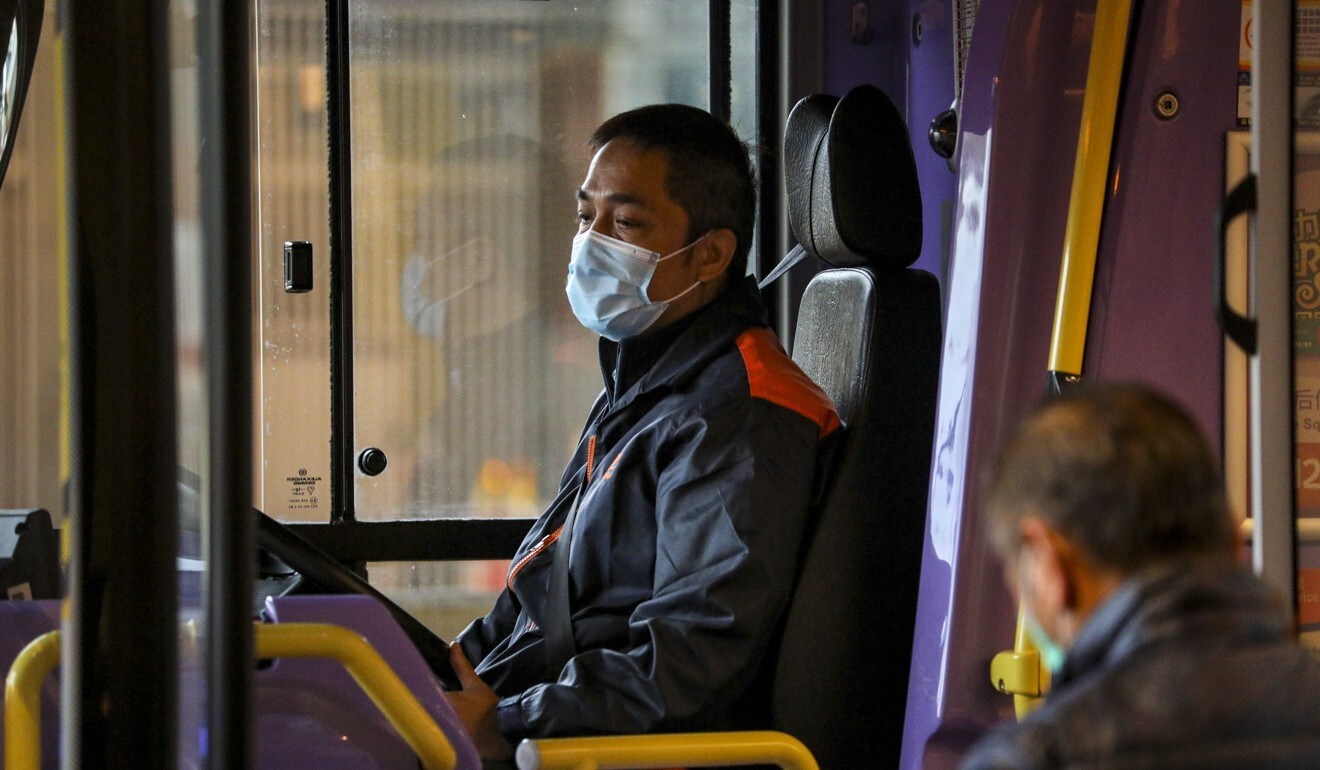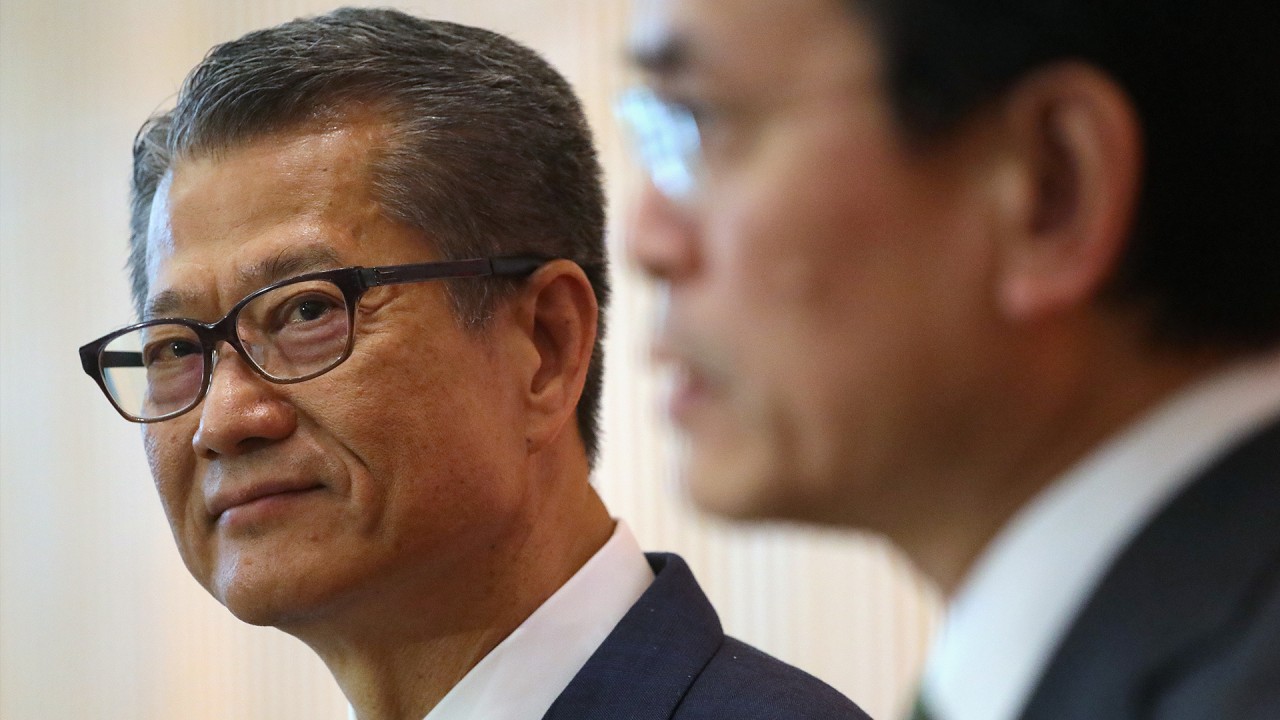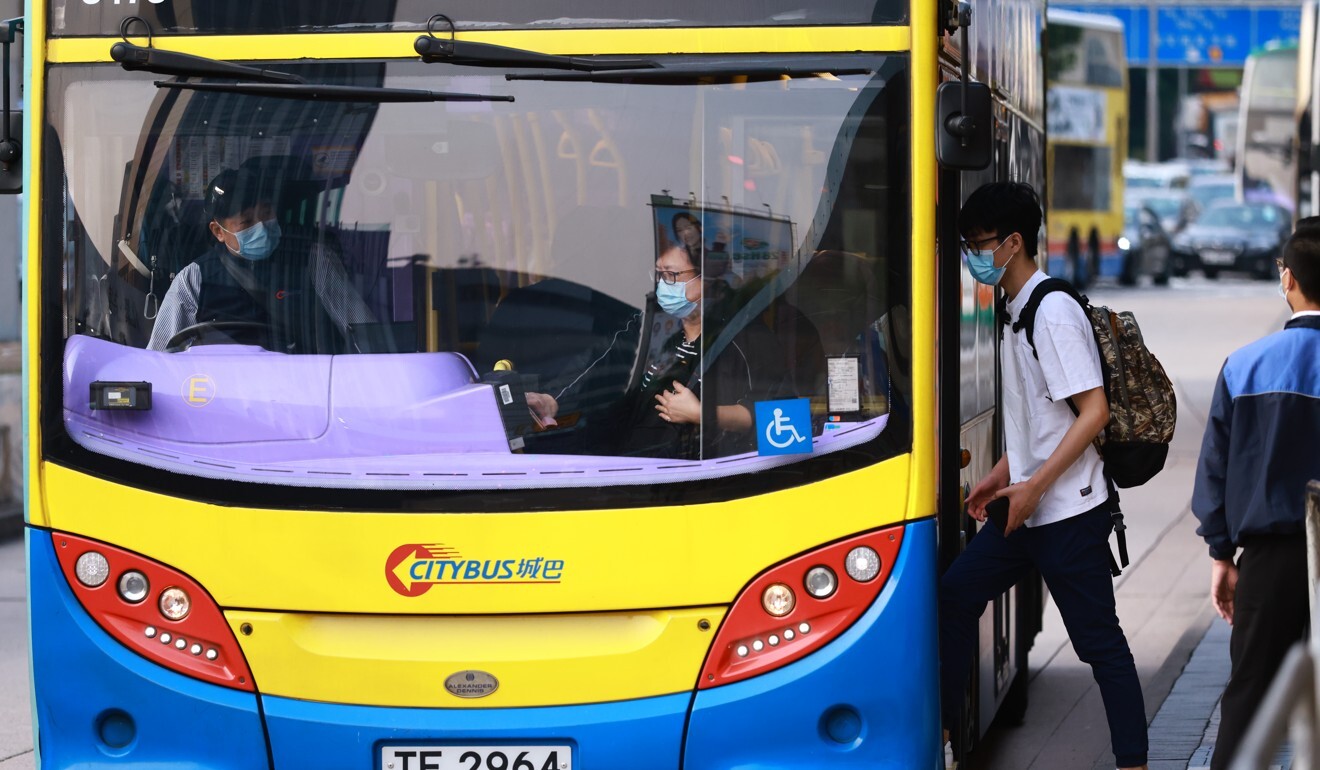
New owner considers merging operations of Hong Kong’s Citybus, New World First Bus after streamlining unified management team
- Plans include having same colour for buses, same uniform for all frontline workers, but merger must wait until 2023, union says
- Despite recent fare increase, bus companies still suffering impact of pandemic, reduce 135 services temporarily
The new owner of one of Hong Kong’s largest franchised bus groups is considering merging the operations of its two subsidiaries – Citybus and New World First Bus (NWFB) – amid heavy losses that have persisted despite a recent fare increase, the Post has learned.
However, as the two firms are bound by the terms and conditions of three government franchises, a staff union said any proposed merger would only be possible in 2023 through discussions about renewing two of those agreements that expire that year. The third runs out in 2026.
The Transport Department confirmed to the Post that both bus companies had indicated their intention to renew the franchises.
“The government will handle these to-be-expired franchises in due course to ensure that public bus services will continue to be provided for the travelling public,” a spokeswoman said.
A consortium led by the private equity fund Templewater Bravo bought the two bus firms from infrastructure company NWS Holdings last October for HK$3.2 billion (US$412 million).

Insiders said Bravo Transport Services, the new company which now runs the two firms, took steps in February to merge and streamline their management teams, cutting more than 10 managerial positions among the 100 back-office staff who were let go.
“Now Citybus and NWFB are under one management team instead of two. Their operations have been grouped together and divided into two big areas – Kowloon and New Territories, and Hong Kong Island,” a source said. “These arrangements are effectively paving the way for merging the two operations.”
Citybus has more than 1,000 mostly yellow buses and 2,300 staff. It has two franchises that will expire in 2023 and 2026. One is for routes covering Hong Kong International Airport and North Lantau, and the other is for Hong Kong Island and the cross-harbour network.
Hong Kong’s Citybus, New World First Bus sold for HK$3.2 billion
NWFB’s franchise expires in 2023 and is for Hong Kong Island, Kowloon, Tseung Kwan O and cross-harbour routes. It has 680 buses, which are mainly orange and white, and about 2,100 staff.
With more than 210 routes, the two companies make up about 30 per cent of the city’s franchised bus operations.
Lam Kam-biu, president of the NWFB Company Staff Union, said Bravo was considering using the same colour for the combined bus fleet, with the same uniform for frontline staff.
“These changes have to be approved by the Transport Department as the franchise conditions stipulate that frontline operations cannot be merged,” he said. “But I understand that Bravo desperately wants to merge the firms.”
The department’s spokeswoman said it had not received any application from Bravo regarding the colour of the buses or staff uniforms.

01:09
Hong Kong announces fresh relief measures for transport and tourism sectors
She added that if the company made such an application, the department would “examine their proposals and their implications carefully, taking into account any impact on existing bus services and passengers”.
In a statement issued on Sunday afternoon, Bravo said it was hit hard by the Covid-19 pandemic, and its pre-tax loss reached HK$813 million in 2020 as overall ridership fell 27 per cent compared with 2019, equivalent to 107 million fewer passengers. Patronage on some airport routes also plummeted by more than 90 per cent as international travel ground to a halt.
Thanks to government subsidies, the loss was reduced to HK$262 million for last year. However, the firm said for the three months from last December to February, incurred losses had already soared to HK$221 million, 84 per cent of the full 2020 losses.
Bravo’s financial position was also hit by “the additional issue of oversupply of services by the NWFB and Citybus operations competing with themselves due to historical legacies”, it said.
“We are carrying out an in-depth study of the Hong Kong Island public transport network with a key focus on how we fully rebuild public transport post the pandemic, ensuring we improve inter-connectivity … in both a customer-centric and financially viable manner,” it said.
In March, the government allowed the firms to increase fares by almost 12 per cent in two phases – 8.5 per cent from April 4 and a further 3.2 per cent from January 2 next year.
If there is a merger, we hope that employees’ job security and salaries won’t be affected
Announcing the streamlining exercise in February, Bravo CEO Adam Leishman admitted the two firms faced a “major financial crisis that needs to be urgently resolved”, and said that they were continuing their dialogue with the government on solutions.
Lam said Bravo had already unified back-office operations of both firms, but frontline operations such as the number of buses on designated routes were subject to the franchise terms.
However, some Citybus drivers on airport routes were reassigned to NWFB routes and the union chief said they had to sign a statement saying they were willing to be part of the temporary arrangement.
“I believe Bravo will propose letting Citybus take over the NWFB franchise to consolidate and streamline the overall bus operations,” Lam said. “The negotiations on the franchise renewal are a good opportunity for such a merger.”

He said both firms have reduced their services, resulting in NWFB drivers suffering a pay cut of at least 20 per cent due to the drop in overtime allowances.
A bus driver himself, Lam said: “In the past I could earn about HK$28,000 per month including overtime allowances. But now my income has been reduced to about HK$22,000 a month.”
The department spokeswoman said Bravo did not need approval to move drivers between the two firms, but had to ensure new arrangements complied with employment contracts and related legislation.
As for the reduction in services, she said given the drastic drop in ridership through the pandemic, the department approved temporary adjustments to 135 Citybus and NWFB bus routes.
Henry Hui Hon-kit, chairman of the Citybus Employees Union, said he once asked Leishman if Bravo planned to merge the two firms, but the CEO did not give a clear answer.
Like Lam, Hui was concerned that a merger would trigger another round of lay-offs and affect wage benefits.
“The wage structure and benefit system of Citybus and NWFB are totally different. If there is a merger, we hope that employees’ job security and salaries won’t be affected,” Hui said.

